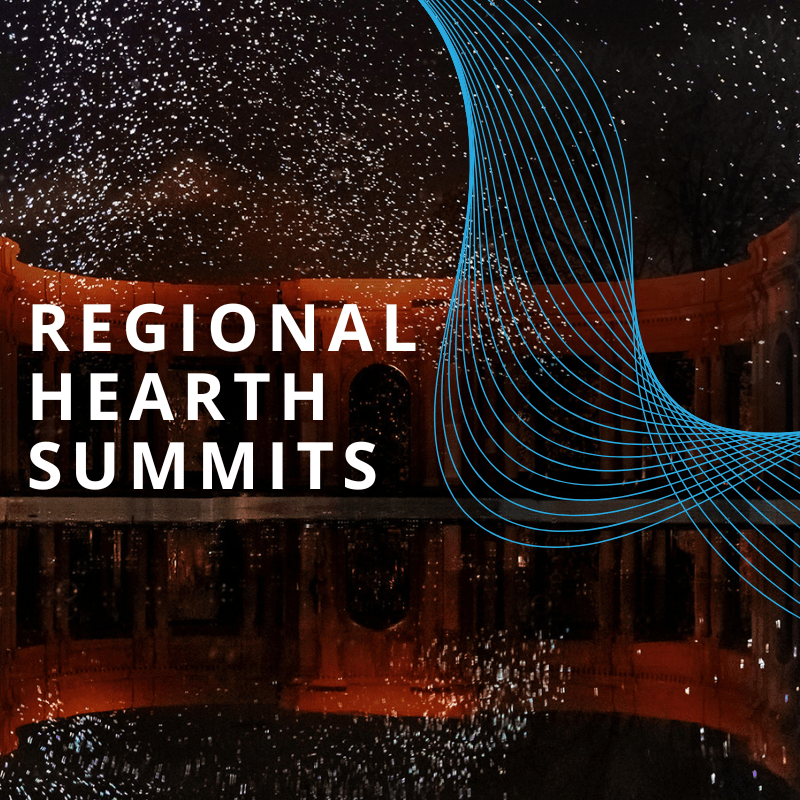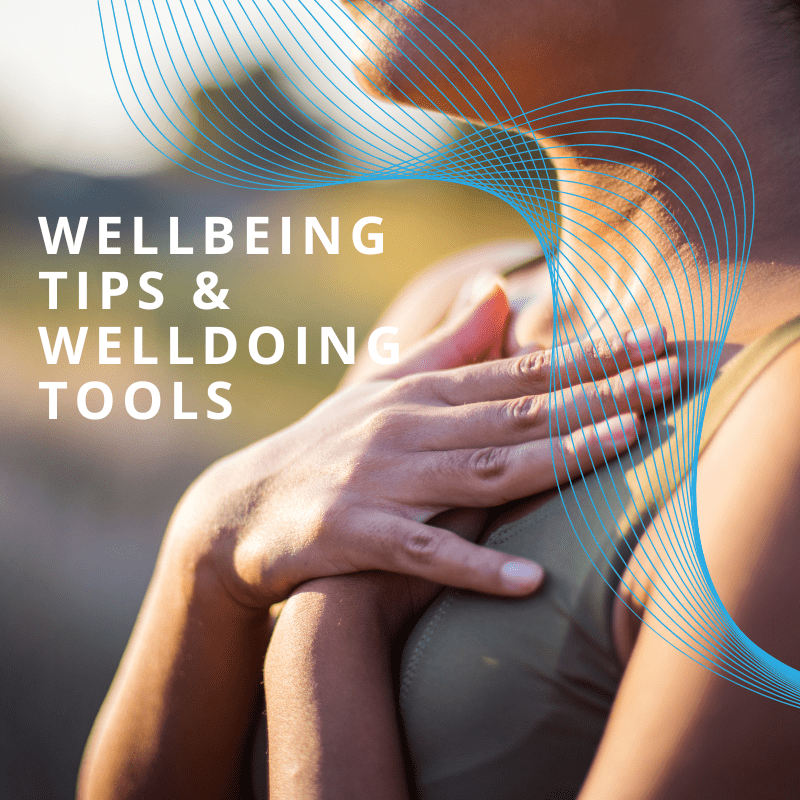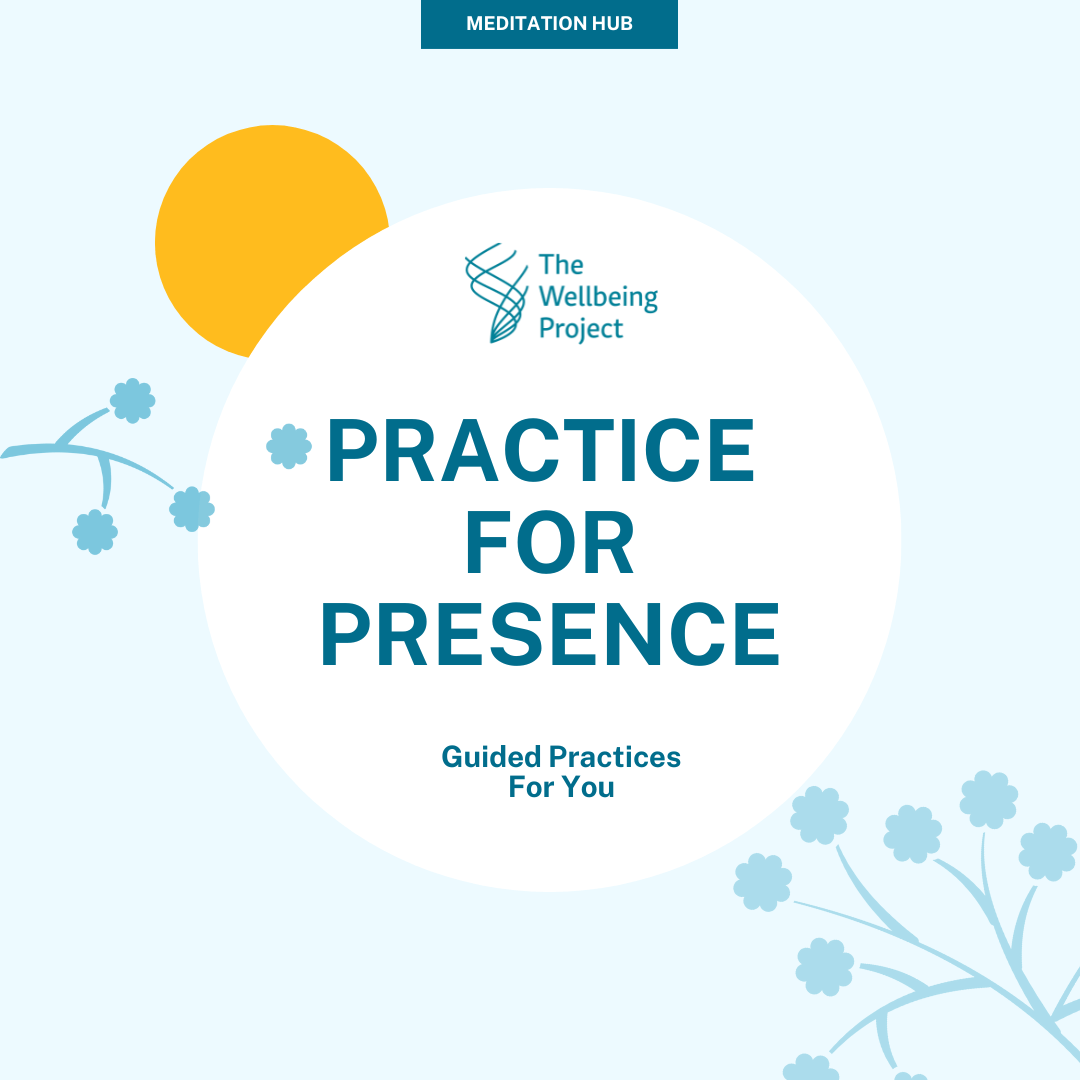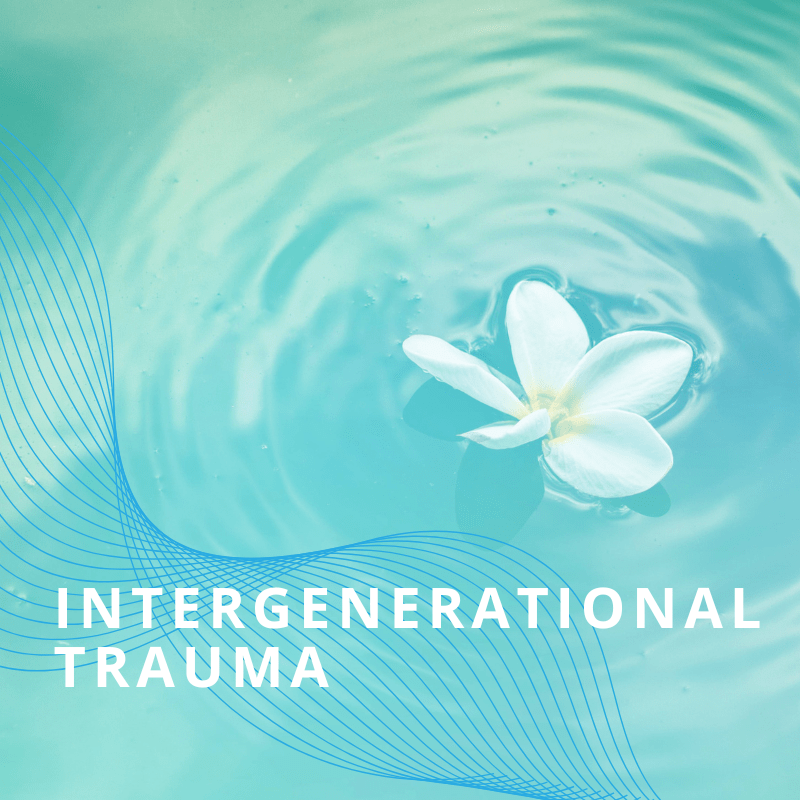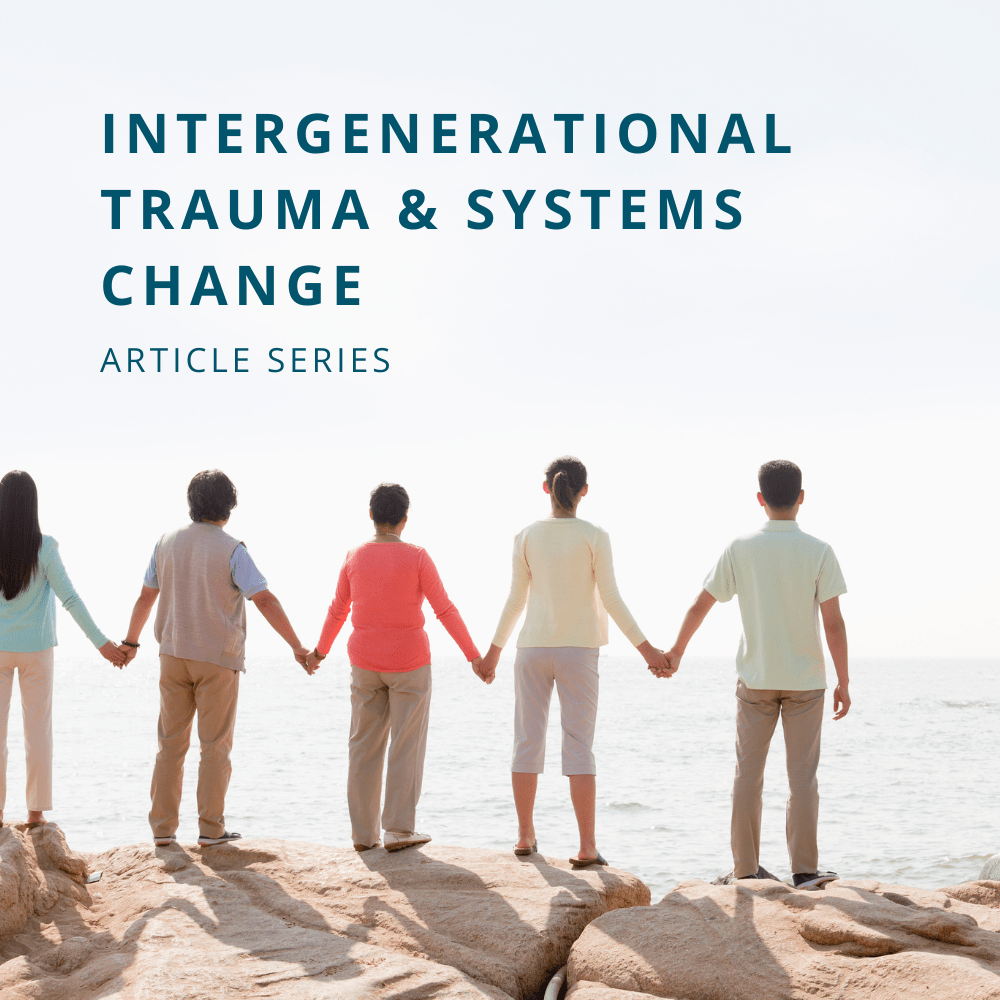
Teaching, Learning, and Co-Creating Teaching, Learning, and Co-Creating
The Science of Wellbeing x Regional Hearth Summits
UNDERSTANDING WELLBEINGUNDERSTANDING WELLBEING
“Whoever teaches learns in the act of teaching, and whoever learns teaches in the act of learning.”
Paulo Freire

COMPASSION, ALTRUISM, AND ECONOMICS
WITH PROF. DR. TANIA SINGER
In Brussels, Prof. Dr. Tania Singer, a world expert on empathy and compassion, led changemakers on a journey from inner work to a more caring economy by explaining how motivation psychology and neurobiology can inform economic models. In fostering pro-social behaviour, she explained, we can enable the impactful collaboration needed to solve our world’s biggest problems, such as climate change, social injustice, and economic inequality. The research offers decision- and policy-makers a new look at how the individual and the collective interact in order to create more sustainable macro-economic environments.

EMOTIONS, HEALING, AND PEACEBUILDING
WITH DR. OLGA KLIMECKI
In Brussels, Dr. Olga Klimecki (pictured above right), Senior Researcher at the University of Geneva, spoke on two panels to bring a neuroscience perspective to conversations on healing and peacebuilding. Citing a new research project from the Swiss Center for Affective Sciences, she explained the growing understanding of the role emotions play in conflict resolution. Through a mix of behavioural and neuroscientific experiments with field studies in conflict areas, the work seeks to aid and inform peacebuilding and diplomacy efforts.

HEALTHY MINDS AND WELLBEING
WITH DR. RICHARD J. DAVIDSON
In Bogotá, Dr. Richard J. Davidson from the Center for Healthy Minds at the University of Wisconsin-Madison shared his pioneering research on the neural bases of emotion and emotional style and how they relate to inner and organizational wellbeing. His work explores how brain function is related to wellbeing and mental health, particularly through the study of contemplative practices such as meditation. Through neuroimaging and behavioural techniques, his research captures the neuroplastic changes that occur and thereby enhance emotional resilience, reduce stress, and promote positive health outcomes.
Neuroscientific Dimensions of Wellbeing
SESSION AT Hearth Summit São Paulo
In São Paulo, Dr. Raquel Tatar, Chief Scientific Officer and Chief Operating Officer, Center for Healthy Minds, shared the dimensions of wellbeing as seen through a neuroscientific lens. Take a deep dive into how the brain works and influences wellbeing, as well as the emerging Healthy Minds Framework. Watch the session (in Portuguese).


ARTS AS THERAPY
WITH ALESSANE SECK
In Dakar-Thiès, art therapist Alassane Seck shared learnings from Fann Hospital, where the Moussa Diop psychiatric clinic is home to Senegal’s first arts therapy programme. Alassane opened the L’Atelier d’EXpression (“The Expression Workshop”) in 1999 aiming to provide holistic care to the clinic’s patients. Engaging with the arts can help alleviate symptoms of many psychiatric disorders such as depression and anxiety, schizophrenia, cognitive impairment and dementia, and autism, in an alternative, non-pharmaceutical approach.
In the specific case of L’Atelier d’EXpression, Alessane explained that only does the programme help patients self-reflect, understand their emotions, express themselves, it also helps shift cultural attitudes towards mental illness in Senegalese society. The participants’ art creations are also often exhibited in various forums and exhibitions, including the regional summit hosted by Tostan, promoting social inclusion and empathy while sharing the story of mental health with wider audiences.

NUTRITIONAL SCIENCES
WITH RUBAIYA AHMAD
In Dhaka, animal welfare activist and educator Rubaiya Ahmad led a workshop on nutritional sciences for changemakers, explaining the physiological relationship between diet and mental health. Conversations about inner wellbeing are incomplete without considering one’s physical wellbeing, she said, as she covered topics such as nutrition, physical exercise, and emotional relationships with food.
As the founder of Bangladesh’s first vegan eatery, The Bangu Vegan, she also shared the human and environmental benefits of eating plant-based foods. She also explained the cultural relevance of plant-based diets in Bangladesh, noting the presence of vegan and vegetarian elements in many authentic Bengali dishes.

SOCIO-EMOTIONAL LEARNING
WITH BRAC INSTITUTE FOR EDUCATIONAL DEVELOPMENT
In Dhaka, a team from BRAC Institute for Educational Development (BRAC IED) introduced changemakers of all ages to Socio-Emotional Learning (SEL). In the hybrid session mixing instruction and interactive play, participants learned the basics of SEL and how its five core competencies — self-awareness, self-management, social awareness, relationship skills, and responsible decision-making — relate to fostering wellbeing individually, collectively, and in the workplace. Through games and reflective conversations, the session also looked at how these competencies are taught, exercised, and perceived in Bangladeshi culture.
EXPLORE THE SCIENCE OF WELLBEING FURTHEREXPLORE THE SCIENCE OF WELLBEING FURTHER
Dive Into Research and Knowledge From Around the World
3-Minute Reflections by Satish Kumar 3-Minute Reflections by Satish Kumar
Healing From Trauma: The Leadership Skill You Didn’t Know You Needed Healing From Trauma: The Leadership Skill You Didn’t Know You Needed
A CONVERSATION WITH:
Benoît Legrand
Business leader, psychogenealogist, former CEO and Chairman
🌍 Paris, France
As the conversation around the impacts of trauma in the social change sector continues to grow, changemakers can take an opportunity to reflect on how their wellbeing impacts their leadership skills.
Last November, TheMerode Club brought together seasoned executives from the government, business, civil society, and academic sectors to reflect on wellbeing at the individual, collective, and planetary levels.
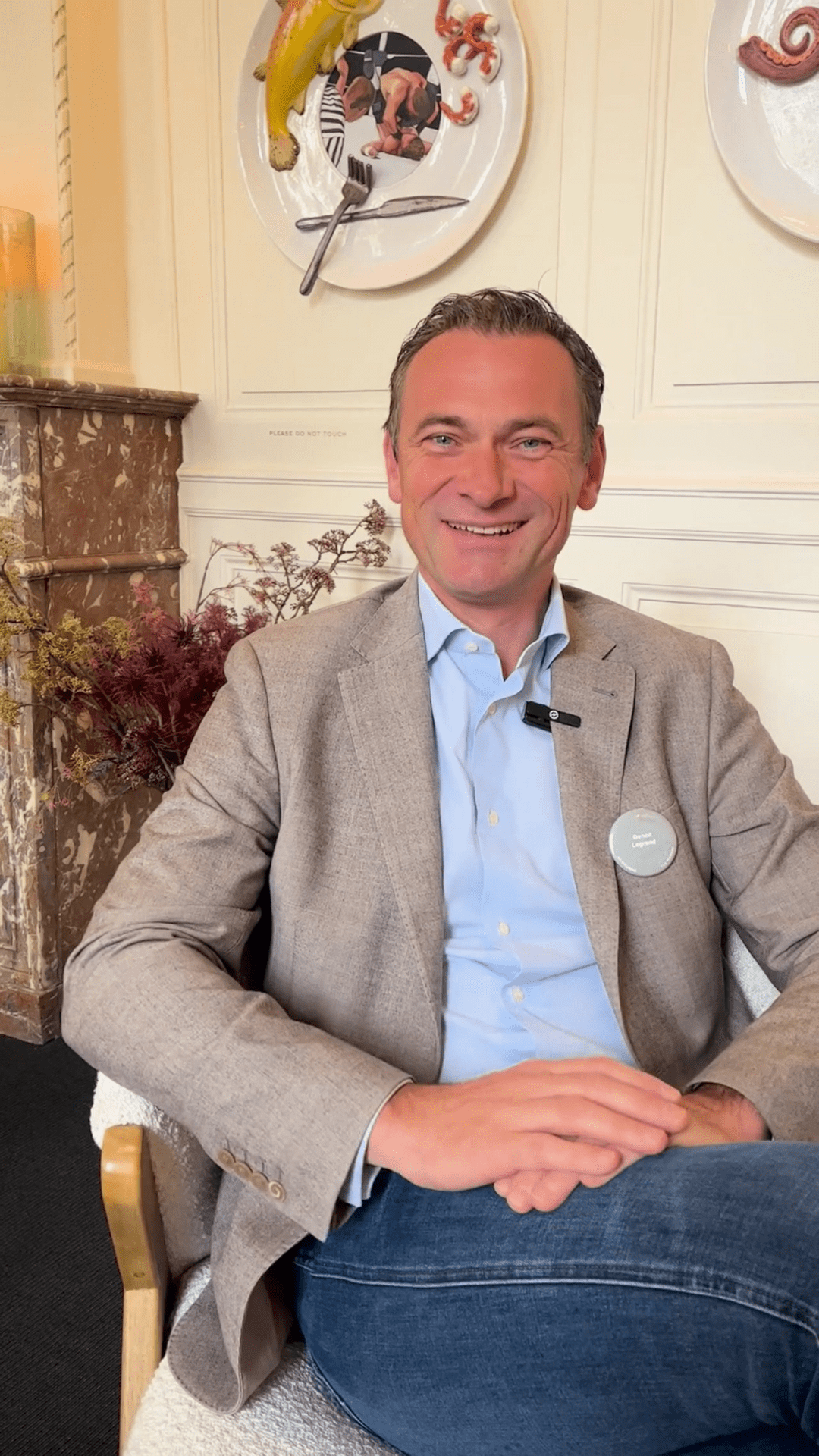
Benoît Legrand, a visionary business leader with over 25 years of experience in various C-level positions in the European financial sector, joined The Wellbeing Summit Brussels to share reflections from his career in business and newfound venture as a psychogenealogist.
Speaking on a panel about the impacts of intergenerational trauma with The Wellbeing Project’s co-lead, Aaron Pereira, and Katherine Milligan, Director of the Collective Change Lab, Benoît encouraged changemakers to connect the individual with the organizational by asking themselves: how do my traumas impact my leadership style?
We sat down with Benoît to dive deeper into this topic. Drawing on his business and personal experiences, hear from Benoît about why acknowledging and addressing one’s traumas is an essential leadership skill, plus encouragement for leaders to start this important journey.
“It should be part of the essentials of leadership. Because, knowing your own darkness is, I think, the best method for dealing with the darkness of other people. You cannot have change, have people change, and change yourself before you accept that something is really wrong. Right?”
Tell us about the impacts of trauma.
Trauma, for me, is something which we all go through, and something absolutely necessary to be aware of to give the best of yourself and find your place in this world. The idea of “trauma” might give or have a sense of drama, which is of course very true when we think about those very macro-level traumas which have affected large populations or very deep traumas that some individuals can go through. Yet, trauma goes also into more subtle dimensions of things which traumatize you. You can be affected by what happened to you consciously, but also by what happened in your family, school, community, country, continent, or race. These impacts are being inherited, which we see now from an analytical and empirical point of view. So in a way, we are all traumatized. But it’s okay. The point is merely for every one of us to just first acknowledge it, dare to look at it and think beyond everything which we know consciously.
I’ll always have in my mind what Carl Jung said, “who looks outside, dreams, and who looks inside, awakes.” I’ve learned that from this process. I thought just looking outside would make me smart and intelligent. But the awakening comes from looking inside of myself, not being scared and not being afraid. By facing reality, we can unlock a lot of situations.
Leaders care about so many people and they don’t want to let anyone down. But they should realize that if they go down themselves, they let everyone down.
When leaders do inner work, including healing from trauma, how does it impact their organization’s wellbeing?
It’s just essential to face your trauma as a leader. You will notice anyone who’s just going out there and showing his vulnerability, just making himself more human. As a leader, if you effectively radiate this positive energy, then it diffuses around the organization. It’s a bit like a pendulum: if at the very top, the positive radiation is there, the radiation at the bottom will be just proportionate. And if the organization is big, or you go to a company or a country, then the impact you can have is just immense. So it’s our own responsibility to think for ourselves: What do I want to be in this world? Do I want to be an agent of positive radiation? Or do I still want to keep all this hatred and and violence and fear and negative energy in myself and overload the world with that right?
Do you think leaders understand the importance of caring for their wellbeing?
Let’s say, okay, we know it’s important to eat. We know it’s important to sleep. We know it’s important to read good things. But do we take, as leaders, the time to step back to sit with someone and just have a conversation? Get a couple of things out, talk and discuss, just to say, “Well, I’m not alone here, right?” and to take care of yourself? It’s fantastic because leaders care about so many people and they don’t want to let anyone down. But they should realize that if they go down themselves, they let everyone down. So having a preventative strike, taking a step back, breathing it, having a discussion and looking at your psychological health is very important. But that can be very hard for leaders, to say, “I need to ask for help.” I personally have been very bad at this.
Can you tell us a bit more about that?
I’ll just testify what I’ve been through. I was having a very intense business life. I was managing teams all over the world and travelling 80% of the time. I was also under heavy stress, with a new CEO that was misaligned with what I was thinking. There was a combination of things, including me having worked like hell for the last 20 years, going all over the place, with pressure from left to right. And at one point, my body – because my brain didn’t want to understand it – sent the signal: stop. My heart gave me a very strong signal that I needed to stop. I stayed in the hospital for four or five days, where I realized that I went over a limit because I was not sufficiently courageous to face my limits and ask for help.
I kept denying reality. I thought, because I’ve been through so many challenges and successes as a leader, I’m going go through it this time also. I’m not going to ask for help or say I’m vulnerable. But the second problem is once you effectively realize you’re not OK and you might not manage to deal with the situation, there’s some kind of taboo. So you just keep fighting on your own. This is what leaders might face. I know that in France, about one out of two leaders or entrepreneurs is close to being in burnout. One out of two, which is just dramatic.
So what should leaders be doing to care for their own wellbeing, which then will have a positive impact on their organizations?
You, as a leader and manager, have been doing nothing else than daring right? You have been taking risks. This is what you do daily. But there are also risks to take about yourself so you can see a couple of things. It’s okay. You will be more powerful by doing it. And really, what do you have to lose? Even if you’re 40, 50, 60, you still have life to live. What do you want to do with it? So look forward and say, “Is it worth taking the time and challenging myself just to try to be at the best place can be on this planet?” If you take that time, once you’re there, nobody can stop you.
Look forward and say, “Is it worth taking the time and challenging myself just to try to be at the best place can be on this planet?” If you take that time, once you’re there, nobody can stop you.
And the systemic approach is so powerful. We live in systemic environments: whatever changes something which influences something which changes, and so on. Once you start talking about something, you see things happening around you. The power of communication, daring to put things on the table and explain things, starts to unlock a lot of things that can bring a lot of peace.
But do this in a secure environment: bring safety and security around you. It can be hard, but if you do it with the right spirit of care, love, and positivity, it will come right back to you.
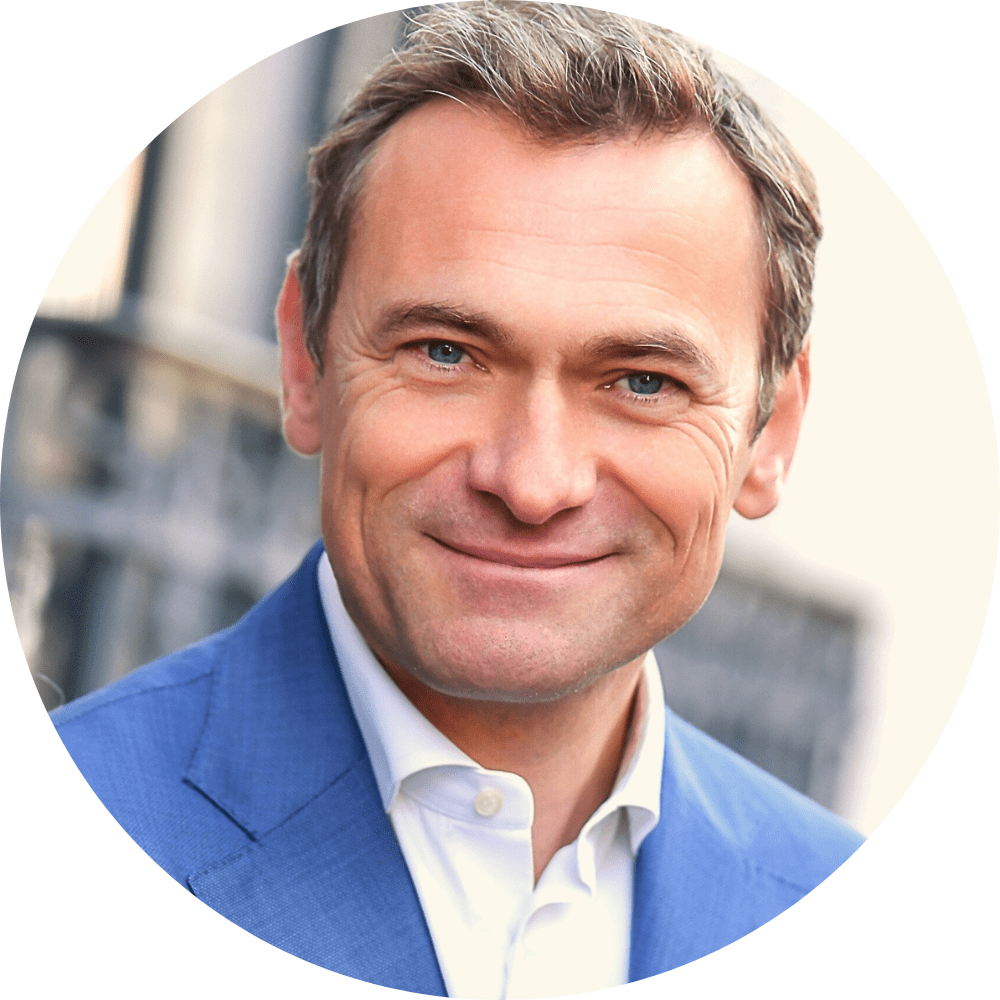
About Benoît
Benoît Legrand is a visionary business leader with over 25 years of experience in various C-level positions across multiple countries. Throughout his career, Benoît’s driving conviction has been centered around putting people at the heart of the company. He believes in genuine care for employees and customers to achieve lasting success. Having served as CEO of ING Direct France, Country CEO of ING France, and Chairman of ING France, he demonstrated his dedication to innovation by spearheading ING Ventures, the EUR 300m Corporate Venture Capital arm. After leaving ING in 2021, Benoît now advises organizations on innovation and transformation. He holds degrees in International Relations and Economics. Belgian and based in France for over 10 years, he has lived in 8 different countries and speak 5 languages.
Want to know more about trauma and its impacts?
Watch the first virtual convening in our webinar series hosted by The Wellbeing Project and the Collective Change Lab. You can also visit our new hub for research and stories on intergenerational trauma. Together, we explore how we can move from trauma-informed to healing-centered ways of working for systemic change.
Discover the Wellbeing Movement in Europe Discover the Wellbeing Movement in Europe
Meet and hear stories from the changemakers championing the wellbeing movement in Europe.

Experiencing Wellbeing Around the World Experiencing Wellbeing Around the World
Wellbeing Practices x Regional Hearth Summits
The regional Hearth Summits gather changemakers from a diverse range of cultures, backgrounds, and fields to explore the intersection of wellbeing and social change. The emotional and intellectual journey of a Hearth Summit inspires us not only to think about the presence of wellbeing in our lives — but to feel it too. We are offered a space to co-create global understandings of what wellbeing is, all the while believing strongly that wellbeing has no one true definition. It must be lived to be understood — and each of us has our own way of being well.
Throughout the regional Hearth Summits, changemakers are invited to explore how they can get in touch with and embody their wellbeing through a variety of practices. With options like physical movement, philosophical explorations, traditions and rituals, and evidence-based approaches, the regional Hearth Summits invite everyone to be well in their own unique way.
Explore the different ways the regional Hearth Summits are encouraging us to look inward and cultivate a sense of inner wellbeing.
Want more ideas for how you can practice wellbeing? You can also find other wellbeing tips here and tell us about your wellbeing practices.
Art as a Creative Outlet Art as a Creative Outlet
“Art has the power to transform, to illuminate, to educate, inspire and motivate.”
Harvey Fierstein
In Dhaka, participants were invited to explore the therapeutic benefits of painting, especially with bright colours, as part of a wellbeing workshop on the emotional boost of light and colours.
In Nairobi, artist Lindsay Dawn Obath guided participants in a self-portrait painting session, inviting them to reflect deeply on their inner worlds and identities, all the while playfully enjoying the simple act of painting.
Changemakers in Dakar-Thiès tried their hand at traditional African basket weaving led by IMADI, who taught them techniques that have been passed down for generations, from grandmothers to mothers to daughters.
In Dhaka, the workshop “Life is an Art” encouraged changemakers to slow down, pause, and enjoy a mindful moment before, in silence, using the arts to express their emotions and reflect on life experiences.
In Nairobi, changemakers took time to delight in the colorful art of floral bouquet design with a workshop guided by Floral Design Studio Kenya, a training studio led by three generations of family florists in Nairobi. The best part: taking your creation home to remember the extraordinary summit!
Awa Fall, who attended Tostan’s training programmes during her incarceration in the Thiès prison and then went on to establish her own tie-dying business, taught changemakers how to dye fabric. With Awa’s expert guidance, participants left the Summit with a hand-dyed scarf, a souvenir of their wellbeing practice.
The Healing Power of SoundThe Healing Power of Sound
“Music produces a kind of pleasure which human nature cannot do without.”
Confucius
In TheMerode’s “Zen Room”, Maïté Herkins guided guests through a therapeutic sound bath during session breaks during The Wellbeing Summit Brussels.
Harp therapist Alix Collin brought the beautiful, healing presence of the harp to The Wellbeing Summit Brussels, even inviting participants to sit against the harp to feel its healing vibrations as she played.
Reggie Hubbard created a harmonious blend of sound by performing a crystal bowls concert amidst the natural melodies of nature thriving at the Omega Institute.
Complimenting the natural soundtrack of birds chirping and leaves rustling in the gardens of Bangla Academy, Swayambhu led participants through a tranquil journey of sound and breath.
MINDFULNESS AND BREATHWORKMINDFULNESS AND BREATHWORK
“Feelings come and go like clouds in a windy sky, conscious breathing is my anchor.”
Thich Nhat Hanh
Amid thought-provoking talks, captivating art performances, and energizing social activities, the regional Hearth Summits remind us there is always time to slow down and notice our breath.
Find your own breath with our guided meditations here.
THE WISDOM OF MEDITATION
SESSION AT Hearth Summit São Paulo
In São Paulo, Daniel Calmanowitz, Vice President of Lama Gangchen Foundation for the Culture of Peace, shared the wisdom of meditation with changemakers and how it can impact individual and collective wellbeing. As a disciple of the Tibetan Buddhist master H.E. Lama Gangchen Rinpoche, a Buddhist practitioner since 1987, and an ordained monk since 2011, Daniel offered profound wisdom from the Buddhist tradition in a cross-cultural dialogue at Hearth Summit São Paulo. Watch the session (in Portuguese).
THE GREAT OUTDOORS THE GREAT OUTDOORS
“Some old-fashioned things like fresh air and sunshine are hard to beat.”
Laura Ingalls Wilder
Taking in the pristine setting of the Omega Institute‘s campus in upstate New York, changemakers enjoyed guided nature walks throughout the gathering. Delegates explored the natural curiosities of the 250-acre campus, filled with gardens, hiking trails, and a lakefront, which invited them to imagine a new season of life for themselves — and the world.
Nestled in the gardens of Tamarind Brasserie, Hearth Summit Nairobi offered changemakers a serene retreat into nature. The forested space not only provided space for changemakers to immerse themselves in nature, but also to interact with some new friends: cats, hares, tortoises, and monkeys regularly roamed through the space throughout the event.
In Dhaka, participants could try on a green thumb by planting seedlings of trees and flowers at a gardening station. Within the gardens of Bangla Academy, a serene oasis of vegetation in the heart of the bustling streets of Dhaka, the Summit allowed changemakers to connect with the Earth, create beauty, and strengthen local biodiversity.
Exercise and Movement Exercise and Movement
“He who has health has hope, and he who has hope has everything.”
Arabian Proverb
Shamima Akhtar Tulee, the first Bangladeshi woman to earn the Shotokan Karate Blackbelt, got changemakers moving in an invigorating chair workout in Dhaka, perfectly adapting movements for all types of abilities and experiences.
In Dakar-Thiès, changemakers discovered capoeira, a Brazilian martial arts practice, with Grupo Africa Capoeira – Ilha de Gorée. In between sessions and discussions, the opportunity to move with a unique fusion of different cultures brought fresh energy and power to the afternoon.
At many Hearth Summits, gentle movements like yoga and stretching invite everyone to turn inwards and develop a stronger connection with their physical selves. Here in Bogotá, a secluded rooftop space for yoga created an extra special moment for mind, body, and soul.
DANCE DANCE
“The drums are humanity’s common pulse.”
Shannon Thunderbird
Since the dawn of humanity, people have gathered around fires to be in community by sharing rituals and practices, such as dances. Our Hearths are no different!
MINDFUL MOMENTS
“Nature does not hurry, yet everything is accomplished.”
LAO TZU
In Brussels, Buddhist monk Bart Weetjens guided changemakers through a silent, mindful lunch. Offering prayer and gratitude for the food before them, changemakers ate together in silence, savouring the taste and nourishment of the meal along with the tranquillity of the moment spent together. A delicious moment for body and soul!
FUN AND GAMES
“A little nonsense now and then is cherished by the wisest men.”
Roald Dahl
Who says playtime is just for children? In Nairobi, time for fun and games was scheduled intentionally throughout the program to create space for joy, fun, and bonding among participants. Different games and activities created moments of lightness amidst deep conversations and interactive workshops — a delightful reminder of the value of creating balance in the world of social change.
EXPLORE WELLBEING FURTHEREXPLORE WELLBEING FURTHER
Dive Into Wellbeing Practices From Around the World

Interconnected Healing From Intergenerational Trauma Interconnected Healing From Intergenerational Trauma
Healing x Regional Hearth Summits
With a growing collective consciousness about the impacts of intergenerational trauma, the regional Hearth Summits are a space for changemakers to explore those impacts in the social change sector. In social change work, trauma can be found at the roots of the biggest challenges facing the world today—and in the lives of the people working to address them. Trauma-informed approaches to social change have the power to help unlock healing, wellbeing, and social transformation for all. The regional Hearth Summits offer an invitation for local communities of changemakers to explore this power, contributing to our global call to move from cycles of trauma to journeys of wellbeing.
Discover how the Hearth Summits’ deep conversations, moving art performances, and embodied workshops create a platform for us to encourage healing and wellbeing for everyone—everywhere.
COLLECTIVE HEALING FOR SYSTEMIC CHANGE COLLECTIVE HEALING FOR SYSTEMIC CHANGE
“It’s when we start working together that the real healing takes place.”
David Hume

Opening a Dialogue on Intergenerational Trauma
Research From the Being and Transforming Think Tank
In Brussels, The Wellbeing Project launched the first part of “Cycles of Trauma and Journeys of Wellbeing: A Framework for Trauma-Informed Practices and Positive Social Change” — the first co-creation from the Being and Transforming Think Tank’s 3-year exploration of intergenerational trauma and social change. The research was published on the Think Tank’s brand-new hub for research, stories, tools, and other resources about IGT and trauma-informed social change work. Changemakers are invited to explore the database of resources and add to it.
Intergenerational Trauma, Ancestry, and Race | Trauma Intergeracional, Ancestralidade e Raça
Session From Hearth Summit São Paulo
In São Paulo, Raquel Barros, Coordinator, Emotional Collaboration Laboratory (ENLACE) and the Possible Worlds Community Extension Program, FACENS University, and Isabel Santos Mayer, Coordinator, Brazilian Institute of Studies and Community Support (IBEAC), joined in a conversation on intergenerational trauma, ancestry, and race in Brazil. Watch the session (in Portuguese).
Katherine Milligan, Director of the Collective Change Lab, educated changemakers on the basics of trauma’s physiological effects on the body, including how the central nervous system initiates the fight-flight-freeze response, and leading changemakers in embodied practices.
Shawan Mahmud, daughter of intellectual martyr Altaf Mahmud, touched souls with her tale of healing from intergenerational trauma in the aftermath of the 1971 Bangladesh Liberation War, calling for accessible mental health services to support all who struggle with the ongoing impacts of the war.
Human rights activist and political refugee Marguerite Barankitse shared her inner and outer journey of peacebuilding after surviving ethnic cleansing campaigns in her home country of Burundi and starting an organization, Maison Shalom, to care for orphaned children.
Psychologist Edgar Gonzalez-Hernandez hosted a workshop on Compassion-Based Cognitive Therapy for participants in Bogotá in a session on how to recognize and start healing from trauma through an evidence-based approach.
Wellbeing Is Community, Resilience, and Inclusion
Interview With Okong’o Kinyanjui
In this interview at the first regional Hearth Summit in Nairobi, meet Okong’o Kinyanjui, Founder and Executive Director of the Queer African Network, as he shares how wellbeing inspires welldoing in his work to support the queer Pan-African community, whose wellbeing continues to be impacted by colonial-era penal codes across Africa.


Mapping the Impacts of Colonialism in Latin America
Workshop with Dr. Laura Calderon de la Barca
In Bogotá, psychotherapist Dr. Laura Calderon de la Barca, a specialist in collective trauma and senior associate of the Collective Change Lab, led changemakers in a reflection mapping the ongoing impacts of colonial history in Latin America and the Caribbean. Changemakers identified the parts of society where the trauma of colonialism is still visible as well as where they see opportunities to act for healing. As a group, they saw trauma manifesting the most within gender dynamics, and they saw the biggest window of opportunity for action in the arts.
You can learn more about Dr. de la Barca’s work to raise the collective consciousness around colonial trauma in the region in our recent webinar series with Collective Change Lab on creating healing systems for social change.
Addressing Post-Genocide Trauma in Rwanda
INTERVIEW WITH DR JEAN BOSCO NIYONZIMA
Director and Executive Founder of the Ubuntu Center for Peace, Dr. Jean Bosco Niyonzima, spoke at The Wellbeing Summit Dakar-Thiès about the impact of intergenerational trauma in Rwanda, where more than 50% of genocide survivors live with mental health disorders like depression. Listen to this brief interview with Voice of America to hear about his approach to mobilizing an integrated, scalable, cost-effective, community-based social healing model across Africa.
In Nairobi, co-chair Honorable Justice Martha K. Koome, EGH explored justice as a shared responsibility and lived experience, requiring empowered individuals, accessible courts, and support for the marginalized. Critical issues discussed included addressing the overrepresentation of people with disabilities in prisons, reducing stigma, and decolonizing the justice system to promote restorative justice.
In Senegal, Safe Open Spaces (SOS) hosted small group sessions to promote emotional expression, active listening, and empathy among changemakers. Focusing on youth mental health, the SOS workshop offered practical skills to young changemakers to use for healing and personal growth.
The intergenerational wellbeing panel in Nairobi, chaired and moderated by Edwin Macharia, explored how individuals, families, and communities are interconnected and shape our collective ecosystem. The session explored how traditional methods can address community trauma and bridge generational gaps by preserving cultural knowledge and fostering overall wellbeing.
Healing From Trauma: The Leadership Skill You Didn’t Know You Needed
INTERVIEW WITH BENOIT LEGRAND
Leaders face challenges every day when managing teams and making decisions. But visionary business leader-turned-psychogenealogist Benoît Legrand says the biggest challenge can actually be an internal one. Hear from Benoît, who spoke about the impacts of intergenerational trauma in leadership and organizational wellbeing at The Wellbeing Summit Brussels, reflect on why leaders should prioritize their wellbeing and healing to be a positive presence for themselves, their teams, and their organizations.
PROCESSING TRAUMA AND HEALING THROUGH THE ARTSPROCESSING TRAUMA AND HEALING THROUGH THE ARTS
“At the deepest level, the creative process and the healing process arise from a single source.
When you are an artist, you are a healer.”
Rachel Naomi Remen
“Tears Ain’t Nothing But Liquid Prayers”
Poetry by Hannah L. Drake
Author, poet, and activist Hannah L. Drake stirred the emotions of her audience at The Wellbeing Summit Omega Institute-Harlem Wellness Center with her poem “Home,” a rebuttal to the state song of Kentucky (where she is from), “My Old Kentucky Home.”
Brilliante Aurora
Music by Oro y Platino
The alabaos are traditional Afro-Colombian funeral songs used to express and share grief and mourning that have been passed down generation to generation. Enjoy this song performed by Oro Y Platino, a group from the Condoto Chocó region of Colombia, who also took to the stage at The Wellbeing Summit Bogotá. All alabaos songs help people to say goodbye to their beloved. “Brillante Aurora” is about saying goodbye to a mother — with the song lyrics, they say goodbye to the Virgin Mary.
The Healing Power of MusicThe Healing Power of Music
MUSIC BY ASIF IQBAL AONTU
At The Wellbeing Summit Dhaka, we discovered musician and journalist Asif Iqbal Aontu’s extraordinary journey from imprisonment to musical soul healing. Through his music, he shares how his toughest experiences led him to a new direction, blending music with cosmic thoughts. With each song, he skillfully intertwines life’s tragedies, pains, and afflictions into a harmonious tapestry.

